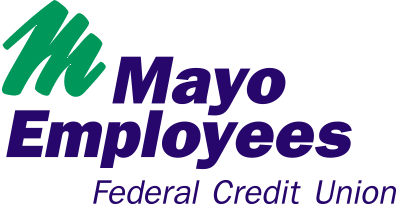
Congratulations on your new degree! Compare payment plans to determine the best way to pay off your student loans.
How much do you owe?
In order to determine your repayment options, you should know what you owe and what payment schedule you are on. It’s common to have both federal student loans and private student loans. Use the National Student Loan Data System to view your federal loans in one place.
Are you prepared for repayment?
As you establish your career, it’s important to leave plenty of room in your budget for student loan payments. You can do this by comparing your income to your outgoing costs. Make a plan and write it down, so you can continue to track how you manage expenses, such as household items, clothes, groceries, entertainment, etc. These simple actions will ensure that you are able to put away savings each month.
What are the repayment options?
With federal loans, you have a variety of options, including income-driven, standard, graduated, and extended repayment plans. Private loans have fewer options and are dependent on the lender’s rules and policies.
Federal Loans
Here are the more common federal repayment options:
- Income-Based Repayment Plan: These payments are calculated based on income and family size. They work on a “pay as you earn model” and are contingent on your income. This type of repayment plan is revised as you grow in your career.
- Standard Repayment Plan: If you are on this plan it means your loan will be repaid in 10 years.
- Graduated Repayment Plan: If you are on this plan, your payments will be lower at the start of the repayment period and increase over time.
- Extended Repayment Plan: This plan is for loans that are at least $30,000 and are anticipated to be repaid in up to 25 years.
Private Loans
Private loans refer to student loans offered through a traditional lender, not the federal government. The repayment plans for these will depend on the lender’s rules and policies. If you have a co-signer, there may be an option to release your co-signer after a specific number of on-time payments. Talk to one of our Loan Officers to find out more information on what MEFCU offers for private student loans.
What are the pros and cons of consolidation?
Through consolidation, you may be able to save money with a lower rate, have a more affordable payment, and release a co-signer.
If you are thinking of simplifying your payments by combining loans, there are a few considerations to keep in mind.
- If you are switching your Federal Loans to a private lender, you may not have as many repayment options. If you consolidate your federal loans to a private lender, be sure to check if the private lender will defer payments if you return to school.
- The new interest rate may be variable rather than fixed. This means the interest rate could increase or that the new rate is higher than the original rate, ultimately costing you more interest.
While there are a variety of factors to take into account when deciding if student loan consolidation is the right step for you, keep in mind that it can help you simplify your budget and potentially save money.
What if I can't afford my loan payment?
There are a couple of different options available to you. First, you can evaluate your budget to see where you could make adjustments in order to better afford your student loan payments. Our budget calculator makes it easy to see where you may have opportunities to cut costs. As a second option, you could claim forbearance, which would postpone your payment. With this, interest continues to accrue, which would cause your loan balance to increase. This is not a viable long-term solution. Help is available.
Now What?
Always shop for the best interest rate and terms and compare offers to make sure you’re getting the best deal possible.
If you are interested in learning more about consolidating your loans, ask us about our Student Loan Consolidation. We are happy to help!
